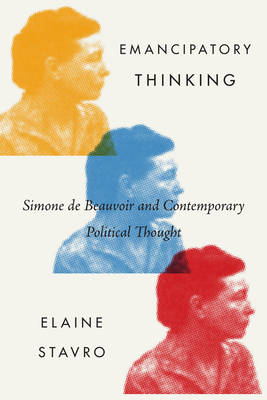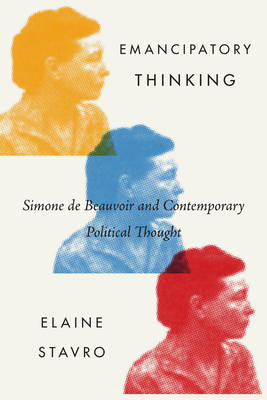
- Afhalen na 1 uur in een winkel met voorraad
- Gratis thuislevering in België vanaf € 30
- Ruim aanbod met 7 miljoen producten
- Afhalen na 1 uur in een winkel met voorraad
- Gratis thuislevering in België vanaf € 30
- Ruim aanbod met 7 miljoen producten
Zoeken
€ 62,45
+ 124 punten
Omschrijving
Most scholars have focused on The Second Sex and Simone de Beauvoir's fiction, concentrating on gender issues but ignoring her broader emancipatory vision. Though Beauvoir's political thinking is not as closely studied as her feminist works, it underpinned her activism and helped her navigate the dilemmas raised by revolutionary thought in the postwar period. In Emancipatory Thinking Elaine Stavro brings together Beauvoir's philosophy and her political interventions to produce complex ideas on emancipation. Drawing from a range of work, including novels, essays, autobiographical writings, and philosophic texts, Stavro explains that for Beauvoir freedom is a movement that requires both personal and collective transformation. Freedom is not guaranteed by world historical systems, material structures, wilful action, or discursive practices, but requires engaged subjects who are able to take creative risks as well as synchronize with existing forces to work towards collective change. Beauvoir, Stavro asserts, resisted the trend of anti-humanism that has dominated French thinking since the 1960s and also managed to avoid the pitfalls of voluntarism and individualism. In fact, Stavro argues, Beauvoir appreciated the impact of material, socio-economic, institutional forces, without forgoing the capacity to initiate. Applying Beauvoir's existential insights and understanding of embodied and situated subjectivity to recent debates within gender, literary, sociological, cultural, and political studies, Emancipatory Thinking provides a lens to explore the current political and theoretical landscape.
Specificaties
Betrokkenen
- Auteur(s):
- Uitgeverij:
Inhoud
- Aantal bladzijden:
- 392
- Taal:
- Engels
- Reeks:
Eigenschappen
- Productcode (EAN):
- 9780773553552
- Verschijningsdatum:
- 11/05/2018
- Uitvoering:
- Paperback
- Formaat:
- Trade paperback (VS)
- Afmetingen:
- 150 mm x 226 mm
- Gewicht:
- 589 g

Alleen bij Standaard Boekhandel
+ 124 punten op je klantenkaart van Standaard Boekhandel
Beoordelingen
We publiceren alleen reviews die voldoen aan de voorwaarden voor reviews. Bekijk onze voorwaarden voor reviews.











